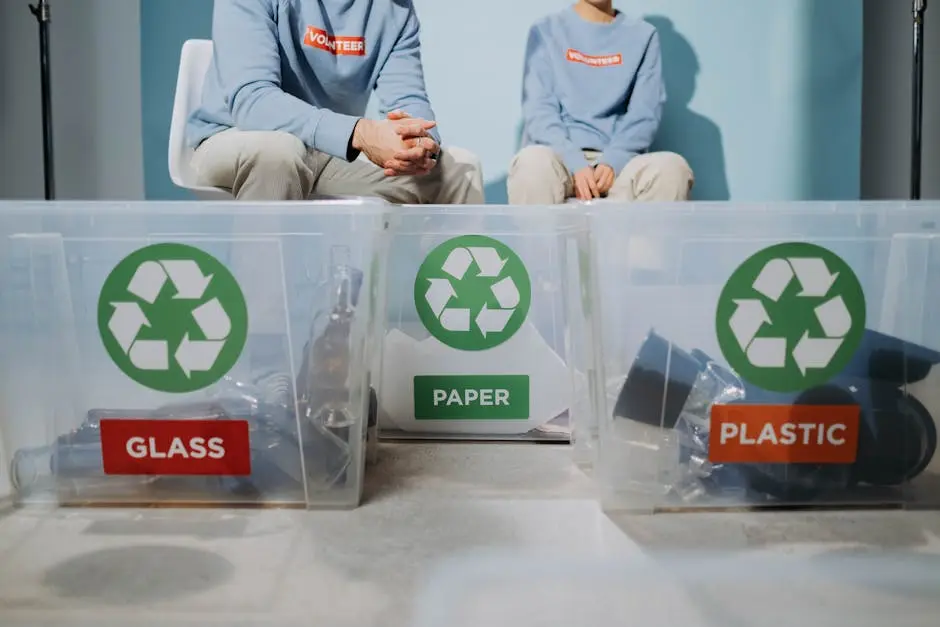Understanding what can and cannot be placed in disposal bins is crucial for effective waste management. Various materials have specific disposal requirements to ensure safety and environmental sustainability.
Why Restrictions Exist
Restrictions on disposal bin contents are in place to prevent environmental harm and ensure public safety. These rules help in managing hazardous and recyclable materials appropriately.
The necessity of these restrictions is highlighted by the potential risks associated with improper waste management. Harmful substances, if not separated and handled correctly, can pose severe health hazards and environmental threats. Compliance with these rules helps mitigate such risks and promotes safer living conditions for communities.
Various governing bodies promote waste segregation as a strategic practice to minimize risks. For instance, waste management legislation in the UK governed by the European Commission’s Waste Framework Directive emphasizes the importance of sorting waste to reduce exposure and injury risk, improve waste minimization, and reduce carbon emissions and financial costs.
General Items Allowed in Disposal Bins
Typically, common household waste like food scraps, paper, and non-recyclable packaging can be placed in disposal bins. These items decompose in landfills without causing significant harm.
It’s important to note that these items are often designated as non-hazardous waste, meaning they do not pose immediate threats to public health or safety. However, even within this category, there are guidelines to follow to ensure efficient waste processing and landfill management.
Prohibited Materials
Items such as batteries, chemicals, electronics, and large appliances are often prohibited in disposal bins due to their hazardous nature. These materials require special handling.
These materials contain potentially dangerous components that can leach into the soil and waterways if not handled correctly. Electronics, for instance, often contain heavy metals like mercury and lead that are harmful to both human health and the environment.
The Controlled Waste Regulations provide detailed classifications of waste, categorizing them based on the risks they pose. This underscores the need for meticulous sorting and specialized disposal processes for specific materials.
Special Disposal for Hazardous Waste
Hazardous waste materials should be disposed of through designated facilities. These include paints, oils, and toxic substances, which need specialized treatment.
Disposing of hazardous waste improperly can lead to severe penalties and environmental regulations breaches. Professional waste disposal services are typically equipped to handle such substances safely, ensuring the prevention of harm.
Facilities handling hazardous waste often use advanced methods such as chemical treatment or incineration to neutralize risks associated with these materials, highlighting the significance of proper waste segregation and disposal strategies.
Recyclable Items and Their Impact
Recycling is critical for reducing landfill waste. Items such as glass, metals, and certain plastics should be separated for recycling to conserve resources and energy.
Effective recycling reduces the demand for raw materials and cuts down on energy consumption, fostering a sustainable environment. Moreover, segregating recyclable materials from regular waste makes processing easier, enhancing the efficiency of recycling plants.
Ensuring that recyclable items are disposed of correctly in designated bins can lead to significant environmental benefits, including reduced pollution and a decrease in greenhouse gas emissions.
Local Regulations and Guidelines
Every locality may have specific guidelines regarding disposal bin usage. It is important to be aware of and adhere to these rules to avoid penalties and contribute to community health.
Local waste management authorities often provide detailed information on the types of materials that are prohibited or require special disposal. Staying informed about these regulations is crucial for responsible and environmentally friendly waste disposal practices.
Local guidelines often reflect the unique environmental needs and limitations of an area, thereby ensuring waste management practices do not compromise the well-being of the local ecosystem.
Summary of Disposal Bin Restrictions
Proper knowledge of disposal bin restrictions supports effective waste management and environmental protection. Always check local regulations and guidelines to remain compliant and responsible.

